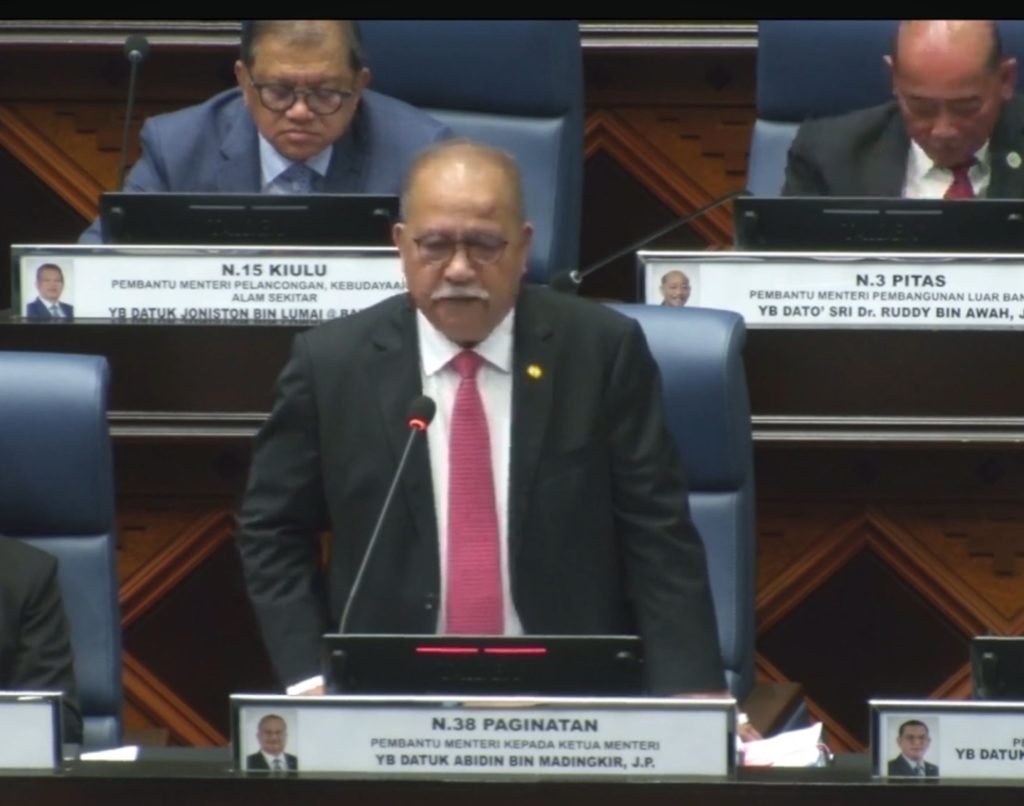The Sabah State Assembly has passed a significant amendment to its forestry law, making it mandatory to obtain a licence for any forest carbon activity—including those on state land, forest reserves, and private titled land.
The Forest Enactment (Amendment) Bill 2025, tabled by Assistant Minister in the Chief Minister’s Department Datuk Abidin Madingkir, introduces a new Part IIIB titled Forest Carbon Activity.
Under Section 28D, no carbon-related initiative—commercial or otherwise—can proceed without state approval through a licensing system.
“This is the right time to enact a specific law to regulate forest carbon activities to protect the state’s interest and the sustainability of our forest resources,” Abidin told the assembly when tabling the bill on Thursday.
He said licensing would ensure that any revenue or funding from such initiatives is channelled directly to the state.
“This amendment strengthens enforcement, promotes sustainable forest management, and positions Sabah to benefit from global climate financing opportunities,” he added.
The bill saw active participation in the House, with five assemblymen debating its provisions and offering questions and suggestions in support of the amendment—namely nominated assemblyman Datuk Seri Yong Teck Lee, Kapayan assemblywoman Jannie Lasimbang, Sungai Manila’s Datuk Mokran Ingkat, Senallang assemblyman Datuk Seri Mohd Shafie Apdal and Bugaya assemblyman Jamil Hamzah.
Responding to concerns raised during the debate, Abidin clarified that tree planting by individuals or communities—whether on private or coastal land—does not require a licence, unless the activity seeks to claim carbon credits.
“Any activity that seeks to claim carbon credits must be registered, inventoried, and licensed under this law. This is to ensure there is no unauthorised exploitation,” he said.
He also assured the House that indigenous communities are not being compelled to obtain licences and that their admitted rights under the Forest Enactment remain protected.
“They are given certain privileges and can enter designated areas — they are protected under this amendment,” he said.
Addressing concerns about penalties, Madingkir acknowledged that enforcement must be balanced.
He suggested lighter compound rates for individuals and stricter penalties for corporations, noting that villagers should not be devastated by unaffordable fines for minor infractions.
The amendment also allows the Chief Conservator to temporarily close forest reserves, introduces a new permit system under Section 24E for restricted activities, and strengthens legal authority to regulate forest carbon standards and link them to national and international registries.
”The chief conservator also cannot act unilaterally. There is a committee in place to assess whether an area should be closed,” he said.
Passed after deliberation in the assembly, the bill comprises 16 clauses and is part of Sabah’s broader strategy to assert legal control over its carbon assets ahead of the federal Climate Change Act expected later this year.
According to Madingkir, the primary purpose of the amendment is to establish legal authority at the state level over forest carbon activities — including carbon credit trading, verification, and inventory processes.
It is also to ensure Sabah’s jurisdiction and control over carbon revenue and forest carbon assets, so that the state is not sidelined when the federal law comes into effect, said Madingkir.
“The amendment gives us the legal basis to regulate carbon credit activities, ahead of the federal law on the same subject expected later this year. It’s important we act now to safeguard the state assets,” he said. – April 17, 2025

